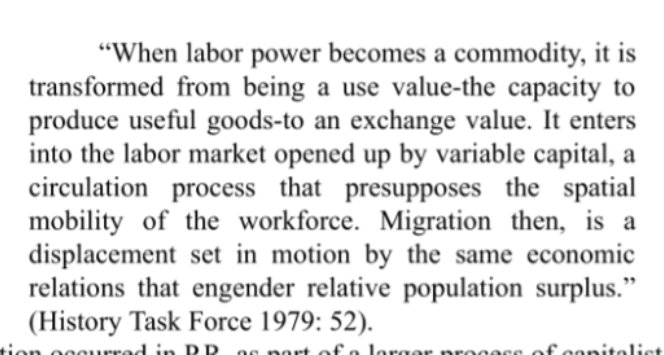You perform work all the time: Making food, fixing things, cleaning up, etc. It's value is it's use, a use-value.
When you sell your ability to do work, you enter an economic relation where your use-value (the ability to do work) is exchanged for money. This gives your work/labor exchange-value.
However, you cannot perform your now sold labor in your home. You must go to your job. This is your spacial mobility. Extend that out logically and you can incorporate migratory labor.
I am less familiar with the "economic relations that engender relative population surplus" but I think it has to do with the analysis in Chapter 25 of Capital, particularly part 3 where he describes the Reserve Army of Labor.

 minor grammatical mistake, looks like everything you’re saying is incorrect so I win
minor grammatical mistake, looks like everything you’re saying is incorrect so I win